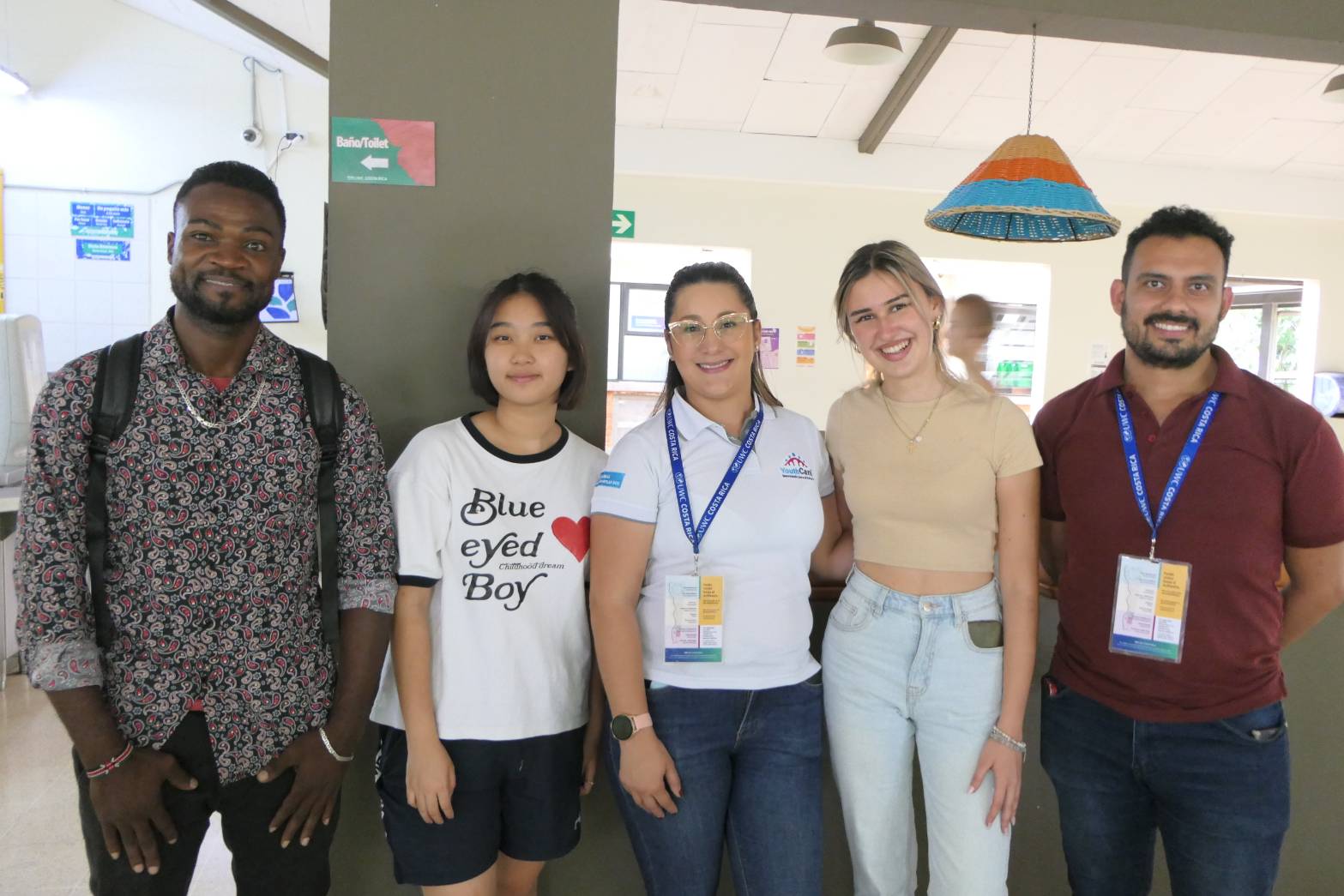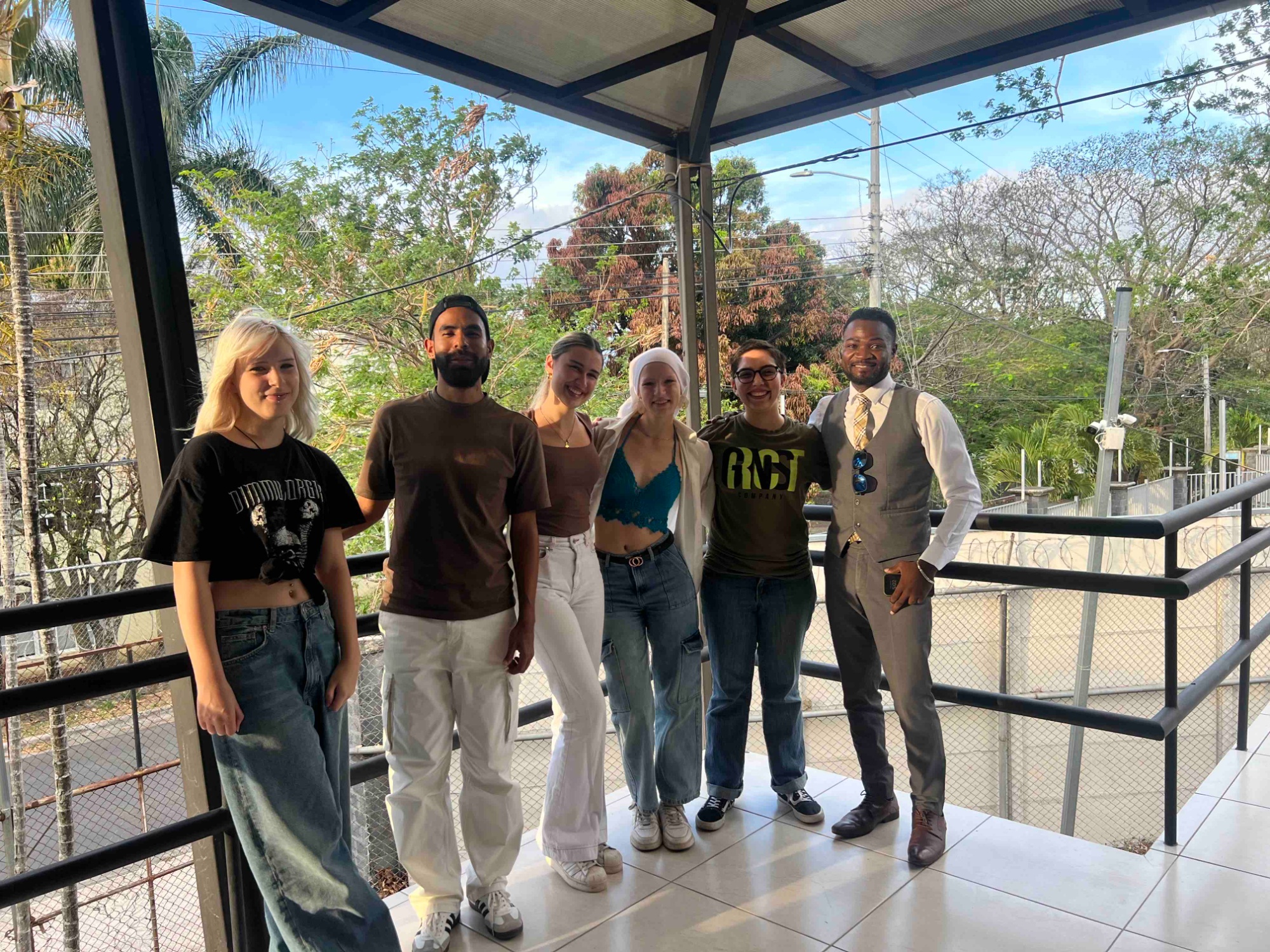Supporting youth-led innovation: Leontina’s story for World Youth Skills Day

(Leontina Trajkoska, Macedonia, UWC Costa Rica 2024-2026)
Every year on 15 July, World Youth Skills Day highlights how vital it is to give young people the skills they need for learning, work and independence. This year’s theme focuses on creating spaces where young people can innovate, lead and shape their own futures.
At UWC, we believe education should give young people the confidence to make a difference wherever they come from. Leontina Trajkoska, a student from Macedonia now studying at UWC Costa Rica, is doing just that. Drawing on her experience of growing up in alternative care – care arranged by the state for children who can’t live with their families – she’s working to help others feel better supported as they move into adult life.
Drawing upon personal experience
The idea for Leontina’s project began with something she heard that struck a deep chord. “I once heard a social worker describe how some young people in foster care inherit debts they never chose – and how, the moment they come of age, not a single penny from their first job ever reaches their bank account because debt collectors get there first,” she says.
“That stayed with me. Because it isn’t just about money – it’s about what happens when you enter adulthood already trapped.”
Leontina had seen how young people in care were expected to handle complex adult responsibilities – like signing a lease, managing a budget or dealing with unexpected costs – without the support that many others take for granted. “I felt invisible to the systems around me, yet completely responsible,” she says. “That experience sparked the idea: what if I could equip others in care with the financial knowledge I wish I had?”
Bridging the gap
 “There’s often a misconception that financial literacy is common sense, but that assumes you’ve had someone to guide you,” Leontina explains. “In alternative care, many of us grow up without a safety net or practical preparation for independent life.”
“There’s often a misconception that financial literacy is common sense, but that assumes you’ve had someone to guide you,” Leontina explains. “In alternative care, many of us grow up without a safety net or practical preparation for independent life.”
She noticed that even the most motivated and capable of her peers lacked access to practical tools — things like understanding a payslip, creating a savings plan or avoiding financial scams. “The gap wasn’t potential – it was opportunity.”
With the support of a UWC GoMakeADifference grant – a programme that provides small grants to help UWC students and alumni bring community projects to life – and the IB Global Youth Action Fund, Leontina designed a programme that would respond to this need directly.
Skills in action
Leontina created and led bilingual workshops in both North Macedonia and Costa Rica, combining financial education with interactive tools, including simulations and real-time voting. “I designed interactive, game-based financial simulations participants could vote on in real time, facilitated bilingual workshops, recruited volunteers and created tools tailored to youth in alternative care,” she says.
 She also gained new skills herself. “This project taught me how to move from frustration to action,” she explains. “I developed the resilience to lead across contexts, working with peers and professionals, initiating partnerships with institutions and universities, navigating cultural differences and adapting when plans shifted. Most importantly, I learned how to listen – with empathy and intention.”
She also gained new skills herself. “This project taught me how to move from frustration to action,” she explains. “I developed the resilience to lead across contexts, working with peers and professionals, initiating partnerships with institutions and universities, navigating cultural differences and adapting when plans shifted. Most importantly, I learned how to listen – with empathy and intention.”
Making lasting connections
For Leontina, the most meaningful moments weren’t just in the workshops, but in the conversations and connections that grew around them.
“One participant told me, ‘I didn’t know I could ask these kinds of questions.’ That stayed with me,” she says. “The workshops weren’t just about managing money – they became spaces where young people felt safe enough to reflect out loud, sometimes for the first time.”
Another young person asked how to apply to UWC after the session. “That meant a lot to me, because I know how life-changing this community can be.”
Leontina also helped reconnect two communities with shared history. Some sessions were held at SOS Children’s Village Santa Ana, and others on the UWC Costa Rica campus – which, years ago, was itself an SOS Village. “We even organised a friendly football match between SOS youth and UWC students – not as a curated ‘activity’, but as a way to build real, mutual relationships beyond structured programmes.”
Looking ahead

Leontina’s next steps are already taking shape. This summer, she plans to expand the project to other SOS Villages globally and introduce small social entrepreneurship challenges to encourage youth-led innovation.
She’s also developing a digital version of the programme and working closely with young people who took part to co-create new materials. At the same time, she’s conducting research with an economics professor to better understand how young people growing up in care build skills and confidence in different countries.
“I want the project to become not only scalable, but evidence-driven,” she says.
Leontina and her supporters are now exploring ways to scale the initiative even further. They’re looking to connect with people who have regional or financial expertise and want to help adapt the curriculum to new contexts. If you’re already affiliated to UWC and think you can help, please get in touch with Leontina via the UWC Hub.
Leontina’s message for World Youth Skills Day
Leontina has a message for young people around the world:
“Don’t wait for someone to hand you permission. If you see a problem that affects you or your community, you might already have the insight to begin changing it. Skills aren’t just tools, they’re seeds. What you build now might grow far beyond what you imagine.”
She also hopes others will start to see young people growing up in alternative care differently - not just for the challenges they face, but particularly for their strengths:
"Young people in care are often seen through the lens of what they’ve lacked, but what’s often missed is what they’ve gained: resilience, adaptability and a deep sense of responsibility,” she says. “We don’t need pity, we need opportunity. And when given space, we’re not just capable of catching up. We’re capable of leading."
